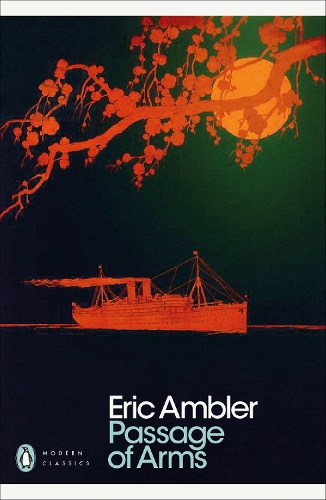
Passage of Arms
(Paperback)
Publishing Details
Passage of Arms
By (Author) Eric Ambler
Penguin Books Ltd
Penguin Classics
9th May 2023
26th January 2023
United Kingdom
Classifications
General
Fiction
Classic fiction: literary and general
823.912
Physical Properties
Paperback
272
Width 128mm, Height 197mm, Spine 16mm
199g
Description
Ambler's classic thriller of post-war international politics and intrigue, centring on gun-smuggling in South-East Asia Girija Krishnan, an Indian clerk, sees the opportunity of his lifetime when he stumbles on a lost cache of arms hidden in the Malayan jungle. If he can find a buyer for the weapons, he will be able to achieve his life-long dream of creating his own bus company. But the risks are as high as the rewards, as the arms draw ever more people into their dangerous orbit- an entrepreneurial trio of Chinese brothers, a sleazy British former soldier, and a naive American couple who find themselves horribly out of their depth. Following the arms as they travel from the jungle to Singapore to Indonesia, Ambler's classic thriller is a tour de force of psychological and political insight, and winner of the 1959 Gold Dagger award.
Reviews
The source on which we all draw -- John le Carr
Unquestionably our best thriller writer -- Graham Greene
Mr. Ambler is phenomenal -- Alfred Hitchcock
A taut and extraordinary piece of writing * Sunday Times *
Ambler is, quite simply, the best * The New Yorker *
Author Bio
Eric Ambler (1909-98) was born in London to parents who were part-time entertainers. He studied engineering but left college without taking a degree and became a copywriter in the advertising industry. Between 1937 and 1940, he published his great anti-fascist spy thrillers- Uncommon Danger, Epitaph for a Spy, Cause for Alarm, The Mask of Dimitrios, and Journey into Fear. In 1940, he joined the Royal Artillery and was later transferred to the army film unit. After the war he worked as a screenwriter in England and Hollywood and married his second wife, a leading Hollywood producer. Ambler's post-war novels include Passage of Arms, The Light of Day and A Kind of Anger, and his profound influence on the genre has been acknowledged by writers including Graham Greene, Ian Fleming and John le Carre.
